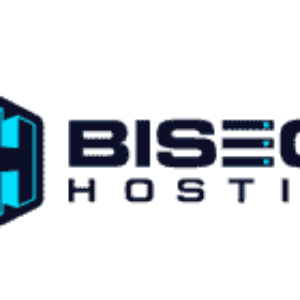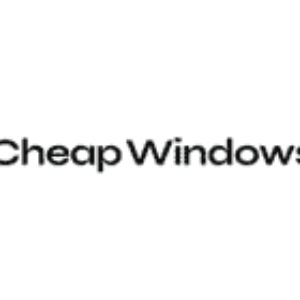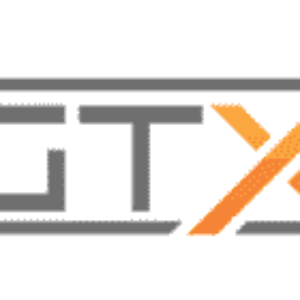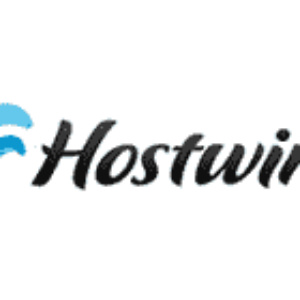Dallas
Introduction: Why Choosing the Right Web Hosting in Dallas Matters
In the heart of Texas, Dallas stands as one of the fastest-growing technology hubs in the United States. With its booming economy and a rapidly expanding digital landscape, choosing the right web hosting service in Dallas has become crucial for businesses aiming to dominate the local market. The quality of web hosting can significantly impact everything from website performance, SEO rankings, and user experience to overall business success. But with countless options available, which web hosting service should you trust for your online presence in Dallas?
Picture this: You’ve invested hours into building a visually stunning, user-friendly website. It’s brimming with high-quality content, optimized images, and SEO strategies designed to catapult you to the top of search engine results. But there’s one fatal flaw—a slow, unreliable web hosting provider that tarnishes your hard work. Visitors are left staring at loading screens or, worse, encountering downtime, leaving a poor impression on potential customers.
When it comes to Dallas, web hosting providers are competing fiercely to cater to the city’s diverse and growing digital landscape. Whether you’re a small business looking to gain a foothold in the local market or a large enterprise needing robust resources, choosing the best hosting solution is no longer an afterthought—it’s a strategic move.
This article delves deep into the best web hosting services in Dallas, highlighting their unique offerings, pricing, performance, and why they stand out in this competitive market. We’ll also offer guidance on how to make an informed decision based on your specific needs, and the criteria that matter most to your success. If you want your business to thrive, read on, because choosing the right hosting partner could be the game-changer you’ve been looking for.
What Makes a Great Web Hosting Service? Key Factors to Consider
Before we jump into the specifics of Dallas-based hosting providers, let’s first explore the key features that define excellent web hosting. Not all web hosts are created equal, and it’s essential to understand which factors will have the most significant impact on your website’s success.
1. Speed and Uptime: The Foundation of User Experience
Speed is everything in the digital world. Research shows that a 1-second delay in page loading time can lead to a 7% loss in conversions, while 40% of users abandon a site if it takes longer than 3 seconds to load. This is why site speed and uptime should be at the top of your priority list when selecting a web host.
Good web hosting providers offer servers with low latency and fast load times, ensuring your site is up and running smoothly at all times. Most importantly, you’ll want a host that guarantees an uptime of at least 99.9%, as frequent downtimes can drastically affect your website’s traffic and SEO rankings.
2. Scalability: Room to Grow
As your business grows, so will your website’s demands. A good web host should offer scalability, meaning you can upgrade your hosting plan easily to accommodate traffic surges or higher storage needs. Whether you’re starting with a basic shared hosting plan or aiming for a more advanced VPS or dedicated server, flexibility is crucial.
3. Security: Protecting Your Digital Assets
Cybersecurity is more important than ever. Hackers, malware, and data breaches pose serious threats to your website and your customers. The best web hosting services offer robust security features such as SSL certificates, firewalls, and automatic backups to ensure your site remains safe and secure.
4. Customer Support: Help When You Need It
In the event that something goes wrong with your site, having a responsive and knowledgeable support team can make all the difference. Look for web hosts that offer 24/7 customer support, whether through live chat, phone, or email. Strong customer service can prevent small problems from turning into major crises.
5. Pricing: Value for Your Money
While it’s tempting to choose the cheapest web hosting plan available, remember that low prices often come with trade-offs in performance, security, and customer support. It’s essential to find a balance between affordability and the features you need to run a successful website.
Top Web Hosting Providers in Dallas: An In-Depth Review
Now that we’ve established what to look for in a web hosting provider, let’s take a closer look at some of the best options available in Dallas. We’ll examine their pricing, features, pros, cons, and why they stand out in a crowded marketplace.
1. Bluehost: A Reliable and Versatile Option
When it comes to web hosting, Bluehost is one of the most well-known names in the industry. They’ve built a strong reputation for offering affordable hosting plans packed with features that cater to a wide range of businesses.
Why Bluehost Stands Out
- Great for WordPress: Bluehost is officially recommended by WordPress, making it a popular choice for anyone running a WordPress site. Their 1-click WordPress installation makes setup a breeze.
- Scalability: Whether you’re starting small with a basic shared hosting plan or need the power of a VPS, Bluehost offers flexible options that can grow with your business.
- Excellent Uptime: Bluehost provides an impressive 99.99% uptime, which is critical for keeping your site accessible around the clock.
- Free Domain and SSL: Every hosting plan comes with a free domain for the first year and a free SSL certificate to keep your site secure.
Cons of Bluehost
- Pricing: While their introductory pricing is affordable, renewal rates can be higher than some other providers.
- Limited Storage on Lower Plans: Some of the more affordable plans come with storage limitations that may be restrictive for larger sites.
Best For
Small to medium-sized businesses, bloggers, and WordPress users looking for a versatile and reliable hosting service.
2. HostGator: A Dallas Favorite for Budget Hosting
Headquartered in Houston, Texas, HostGator is another major player in the web hosting industry with a solid presence in Dallas. Known for its affordable pricing and user-friendly platform, HostGator is ideal for those who are new to hosting or have smaller budgets.
Why HostGator Stands Out
- Budget-Friendly: HostGator offers some of the most competitively priced hosting plans available, making it an attractive option for individuals or small businesses.
- Unlimited Bandwidth and Storage: Even the most basic plan includes unlimited bandwidth and storage, ensuring that your site can handle high levels of traffic.
- 45-Day Money-Back Guarantee: HostGator offers a generous refund policy, allowing you to try their service risk-free for 45 days.
- 24/7 Support: With round-the-clock support, you can rest easy knowing help is always available if you need it.
Cons of HostGator
- Performance Could Be Better: While HostGator is reliable, its speeds aren’t as fast as some competitors, which might be an issue for high-traffic websites.
- Upselling: HostGator tends to upsell additional services during the checkout process, which can feel overwhelming for new users.
Best For
Small businesses, personal websites, and those on a tight budget who need reliable, basic hosting services.
3. SiteGround: Performance-Driven Hosting
If you’re looking for exceptional performance and customer service, SiteGround is a top contender. Though slightly pricier than other options, the value you receive in terms of speed, uptime, and support is well worth the investment.
Why SiteGround Stands Out
- Top-Tier Speed: SiteGround’s speed-optimized hosting plans are perfect for businesses that require fast-loading websites, which can significantly improve user experience and SEO.
- Advanced Security Features: With daily backups, anti-bot systems, and secure account isolation, SiteGround offers top-notch security to protect your site from threats.
- Managed WordPress Hosting: Their managed WordPress hosting plans come with automatic updates, daily backups, and free CDN integration, ensuring a hassle-free experience for WordPress users.
Cons of SiteGround
- Higher Price Point: SiteGround’s plans are a bit more expensive than budget options, but the performance and support justify the cost.
- Limited Storage: Their basic plans offer limited storage, which might not be ideal for large sites with a lot of media files.
Best For
Businesses that prioritize speed and security, eCommerce websites, and WordPress users looking for managed hosting solutions.
4. GoDaddy: A Familiar Name with a Range of Hosting Options
GoDaddy is a name that’s almost synonymous with domain registration, but they also offer a wide range of web hosting services. With a massive global presence, GoDaddy provides reliable hosting options that cater to businesses of all sizes.
Why GoDaddy Stands Out
- One-Stop Shop: In addition to hosting, GoDaddy offers domain registration, website building tools, and marketing solutions, making it a convenient choice for businesses looking to manage everything in one place.
- User-Friendly: GoDaddy’s platform is designed to be easy to use, even for beginners, with intuitive tools and a simple control panel.
- Extensive Customer Support: With 24/7 customer support and a vast library of tutorials and how-tos, GoDaddy ensures you’re never left in the dark.
Cons of GoDaddy
- High Renewal Rates: Like many hosting providers, GoDaddy’s renewal rates are significantly higher than their introductory offers.
- Limited Features on Lower Plans: Some of the lower-tier plans come with limitations in terms of storage and advanced features, which may not suit growing businesses.
Best For
Small to medium-sized businesses, beginners, and those looking for a one-stop solution for domain registration and hosting.
Why Location Matters: Benefits of Hosting in Dallas
You might wonder why hosting your website in Dallas specifically would make a difference. After all, the internet is global—does it matter where your server is located? The answer is yes. There are several reasons why choosing a web hosting provider with data centers in Dallas or nearby can benefit your business.
1. Improved Latency for Local Customers
Latency refers to the time it takes for data to travel between the server and the user. If your website is hosted in a data center close to your target audience, such as Dallas for local businesses, the data doesn’t have to travel as far. This results in faster load times, which can improve user experience and reduce bounce rates.
2. Better Search Engine Optimization (SEO)
Google considers page speed as a ranking factor. Hosting your website on a server closer to your audience can improve your page load times, which in turn can boost your SEO rankings. This is particularly important for businesses targeting local Dallas customers, as search engines often prioritize geographically relevant results.
Understanding Different Types of Web Hosting Plans
When it comes to selecting the best web hosting service in Dallas, it’s important to understand the different types of hosting plans available. Each plan is tailored for specific needs, and choosing the right one can greatly impact your website’s performance, cost, and scalability.
Shared Hosting: The Affordable Option for Beginners
Shared hosting is the most affordable type of web hosting available, making it an ideal choice for small businesses and personal websites that are just starting out. With shared hosting, your website shares resources (such as CPU, RAM, and storage) with other websites on the same server. This can help keep costs down, but it also means that your website’s performance could be affected if other sites on the server experience high traffic.
Advantages of Shared Hosting:
- Cost-Effective: Shared hosting is one of the most affordable hosting solutions available, making it perfect for startups or small websites with low traffic.
- User-Friendly: Most shared hosting providers offer simple control panels, such as cPanel, that make it easy for beginners to manage their websites.
- Maintenance-Free: With shared hosting, the web host takes care of all the server maintenance, security, and updates, so you don’t have to worry about the technical side of things.
Disadvantages of Shared Hosting:
- Limited Resources: Since you’re sharing server resources with other websites, your site’s performance could suffer during traffic spikes.
- Security Concerns: If another site on the same server gets hacked or experiences malware, it could potentially affect your site as well.
VPS Hosting: A Balance of Performance and Cost
VPS (Virtual Private Server) hosting is a step up from shared hosting, offering more resources and control without the cost of a dedicated server. With VPS hosting, your website is still on a shared server, but the server is partitioned into virtual machines. This gives you dedicated resources that are not shared with other websites.
Advantages of VPS Hosting:
- Dedicated Resources: Unlike shared hosting, VPS hosting provides you with dedicated resources, ensuring better performance and stability.
- Scalability: VPS hosting is easily scalable, allowing you to upgrade your resources as your website grows.
- Increased Security: Since your website is isolated in a virtual environment, it’s more secure compared to shared hosting.
Disadvantages of VPS Hosting:
- Higher Cost: VPS hosting is more expensive than shared hosting, though it’s still cheaper than a dedicated server.
- Technical Knowledge Required: Some VPS hosting plans require you to manage your own server, which can be challenging if you don’t have the technical expertise.
Dedicated Hosting: Ultimate Power and Control
Dedicated hosting provides you with an entire server for your website, offering the highest level of performance, security, and control. This is an ideal option for large businesses, eCommerce websites, or high-traffic sites that require maximum uptime and reliable resources.
Advantages of Dedicated Hosting:
- Full Control: With dedicated hosting, you have full control over your server’s configuration, allowing you to optimize it to meet your website’s specific needs.
- High Performance: Since you’re not sharing server resources with other websites, dedicated hosting provides the best possible performance.
- Top-Notch Security: Dedicated servers offer the highest level of security, with the ability to implement custom firewalls, DDoS protection, and more.
Disadvantages of Dedicated Hosting:
- Expensive: Dedicated hosting is the most expensive type of hosting available, making it overkill for smaller websites.
- Requires Technical Expertise: Managing a dedicated server can be complex, and you may need a team of IT professionals to handle server maintenance, security, and updates.
Cloud Hosting: Flexibility and Scalability
Cloud hosting is one of the newest and most popular types of web hosting. Instead of relying on a single server, cloud hosting uses a network of servers to host your website. This offers increased reliability, scalability, and flexibility, as resources can be distributed across multiple servers.
Advantages of Cloud Hosting:
- Scalability: Cloud hosting allows you to easily scale your resources up or down based on your website’s traffic and needs.
- Reliability: With cloud hosting, your website is less likely to experience downtime because it’s supported by a network of servers rather than just one.
- Cost-Effective: Cloud hosting often operates on a pay-as-you-go model, so you only pay for the resources you use.
Disadvantages of Cloud Hosting:
- Complex Pricing: Cloud hosting’s pay-as-you-go model can be confusing, and costs can add up quickly if your site experiences a sudden traffic spike.
- Technical Complexity: Managing a cloud hosting environment can be more complex than traditional hosting options, requiring a certain level of technical expertise.
How to Choose the Best Hosting Plan for Your Dallas Business
Now that you understand the different types of web hosting services, the next step is determining which plan is best for your business. Here are some key factors to consider when choosing the right hosting plan for your Dallas-based website:
1. Know Your Website’s Needs
Before selecting a web hosting plan, it’s essential to have a clear understanding of your website’s needs. Consider factors such as the amount of traffic your site receives, the type of content you’re hosting (e.g., images, videos, eCommerce products), and whether you need specialized features such as SSL certificates or dedicated IP addresses.
For example, if you run a small business website with a few pages and low traffic, shared hosting might be sufficient. However, if you run an online store with high traffic and sensitive customer data, VPS hosting or dedicated hosting would be more appropriate.
2. Consider Your Budget
Your budget will play a significant role in determining which web hosting plan is right for you. While shared hosting is the most affordable option, you may need to invest in a more expensive plan if your website requires more resources or advanced features. Be sure to consider both the initial cost and the renewal rates, as some hosting providers offer low introductory prices that increase significantly after the first term.
3. Evaluate the Provider’s Reputation
Not all web hosting providers offer the same level of service, so it’s important to research each provider’s reputation. Look for customer reviews, performance tests, and support ratings to ensure you’re choosing a reliable host. Additionally, consider whether the provider has data centers located in or near Dallas, as this can improve your website’s speed and performance for local users.
Final Tips for Choosing the Best Web Hosting Service in Dallas
Selecting the right web hosting service in Dallas requires careful consideration of your website’s needs, your budget, and the features offered by various providers. Whether you’re a small business looking for a budget-friendly option or an enterprise in need of robust performance and security, there’s a hosting solution out there that’s perfect for you.
To ensure you’re making the best choice, follow these final tips:
- Research the provider’s reputation: Look for customer reviews, performance tests, and support ratings to ensure you’re choosing a reliable host.
- Consider your future growth: Choose a plan that can scale with your business as it grows.
- Don’t compromise on security: Ensure your host offers strong security features such as SSL certificates, firewalls, and automatic backups.
- Take advantage of free trials and money-back guarantees: Many hosting providers offer risk-free trials or money-back guarantees, allowing you to test their services before committing long-term.
Common Web Hosting Mistakes to Avoid
Choosing the right web hosting service is critical to your website’s success, but there are several mistakes that many business owners make when selecting a hosting provider. These mistakes can lead to slow performance, downtime, and even security vulnerabilities. Let’s take a closer look at some of the most common pitfalls to avoid when choosing your web hosting service in Dallas.
1. Choosing Based Solely on Price
It can be tempting to choose the cheapest hosting plan available, especially when you’re trying to keep costs low for your business. However, choosing a web host based solely on price can lead to poor performance, downtime, and limited features. While shared hosting might be the most affordable option, it often lacks the resources needed for fast load times and reliable uptime, especially as your website grows.
Instead, look for a hosting provider that offers a balance between affordability and performance. While the cheapest option might save you money upfront, it could end up costing you more in the long run due to poor performance and lost business.
2. Not Considering Scalability
One of the biggest mistakes businesses make is choosing a hosting plan that doesn’t allow for scalability. As your website grows, so will its need for more resources such as bandwidth, storage, and RAM. If you choose a hosting plan that cannot be easily upgraded, you may find yourself having to migrate to a new host, which can be time-consuming and potentially disruptive to your site’s performance.
Choose a web hosting provider that offers scalable plans, so you can easily upgrade your hosting as your website grows. This way, you’ll avoid the headaches of migrating to a new provider later on.
3. Ignoring Customer Support
Many businesses overlook the importance of having reliable and responsive customer support. When your website experiences issues, such as downtime or a security breach, having access to 24/7 customer support can be the difference between quickly resolving the problem and prolonged downtime that affects your business.
Make sure to choose a web hosting provider that offers multiple support channels (such as live chat, phone, and email) and has a reputation for providing fast, helpful support.
4. Overlooking Security Features
In today’s digital world, cybersecurity is more important than ever. Many small businesses make the mistake of assuming that security features are not a top priority. However, a security breach can result in stolen customer data, lost revenue, and a damaged reputation.
Look for a web hosting provider that offers strong security features such as:
- SSL certificates for secure data transmission
- Firewalls to block unauthorized access
- Daily backups to protect against data loss
- DDoS protection to prevent attacks
Choosing a host with robust security features will help protect your website from potential threats.
5. Not Considering the Data Center Location
The location of your web host’s data center can have a significant impact on your website’s performance. If your target audience is primarily based in Dallas, choosing a hosting provider with data centers in or near Dallas can help reduce latency and improve load times.
When selecting a web host, make sure to consider where their data centers are located and whether they are strategically placed to serve your audience. Some providers offer CDN (Content Delivery Network) services, which can also help improve load times by distributing content across multiple servers around the world.
The Future of Web Hosting: Trends to Watch
The web hosting industry is constantly evolving, with new technologies and trends emerging that promise to improve website performance, security, and scalability. As you consider your web hosting options in Dallas, it’s important to stay informed about the latest developments in the industry. Let’s explore some of the key trends that are shaping the future of web hosting.
1. Green Web Hosting
As businesses become more environmentally conscious, there has been a growing demand for green web hosting solutions. These hosting providers aim to reduce their environmental impact by offsetting their energy consumption with renewable energy credits or by using energy-efficient technologies in their data centers.
Green web hosting not only helps reduce your carbon footprint but can also improve your business’s reputation by aligning with environmentally friendly practices. Providers such as GreenGeeks are leading the charge in offering eco-friendly hosting solutions, making it easier than ever to make sustainable choices for your business.
2. Cloud Hosting and Serverless Architecture
Cloud hosting has already become a popular choice for businesses that need flexible, scalable hosting solutions. With cloud hosting, your website’s data is stored across multiple servers, which improves reliability and performance.
But the future of web hosting is moving beyond cloud hosting to include serverless architecture, where businesses can run their applications without managing any servers. Serverless architecture allows websites and applications to scale automatically in response to traffic surges, making it an ideal solution for businesses that experience fluctuating traffic patterns.
3. Enhanced Cybersecurity Measures
As cyber threats continue to evolve, web hosting providers are placing a greater emphasis on enhanced security features. In the future, we can expect to see more hosting providers offer AI-driven security solutions, such as real-time threat detection and automated responses to potential attacks.
Additionally, more hosting providers will likely adopt Zero Trust Architecture (ZTA), a security model that requires strict verification for every user and device attempting to access the network. This approach helps prevent unauthorized access and ensures that only trusted entities can interact with your website.
4. AI and Machine Learning for Optimized Performance
Artificial intelligence (AI) and machine learning are making their way into the world of web hosting, offering new ways to optimize performance and improve user experience. In the future, we can expect to see hosting providers use AI to automatically adjust server resources based on real-time traffic data, ensuring that websites always load quickly and efficiently.
AI-driven predictive analytics can also help web hosting providers identify potential issues before they become problems, such as predicting when a server might fail or when a traffic spike is likely to occur. This proactive approach to web hosting will help businesses maintain consistent uptime and avoid performance bottlenecks.
Conclusion: Choosing the Right Web Hosting Service in Dallas for Your Business
The web hosting landscape is vast, and choosing the right hosting service for your business in Dallas requires careful consideration of several factors, including performance, scalability, security, and support. By understanding your website’s needs, budget, and long-term goals, you can make an informed decision that will set your business up for online success.
Whether you opt for a shared hosting plan to get started or invest in a dedicated server for maximum control, selecting the right hosting provider is essential for delivering a fast, secure, and reliable experience to your website visitors. From industry leaders like Bluehost and HostGator to specialized providers like GreenGeeks and WP Engine, there are plenty of options available to help you meet your specific needs.
Remember, the best web hosting provider is one that not only offers the features and performance your website requires but also supports your business as it grows and evolves in the dynamic digital landscape of Dallas.
Frequently Asked Questions (FAQ)
1. What is the best web hosting service for small businesses in Dallas?
For small businesses, HostGator and Bluehost are great options due to their affordable pricing, reliable uptime, and easy-to-use interfaces. Both offer shared hosting plans that are perfect for businesses just getting started.
2. How important is uptime for web hosting?
Uptime is critical for ensuring that your website is accessible to visitors. Look for hosting providers that offer at least 99.9% uptime, as frequent downtime can negatively impact your site’s traffic and SEO rankings.
3. Do I need managed hosting for my WordPress site?
If you’re running a WordPress site and want hassle-free performance, managed WordPress hosting is highly recommended. Providers like WP Engine offer managed hosting plans that include automatic updates, backups, and performance optimizations.
4. Can I switch hosting providers if I’m not satisfied?
Yes, most hosting providers offer free site migrations or easy tools to help you transfer your website to a new host. Make sure to check if your new provider offers migration assistance before making the switch.
5. How much does web hosting cost?
The cost of web hosting varies depending on the type of hosting and the features you need. Shared hosting plans can start as low as $2.95 per month, while VPS and dedicated hosting plans can range from $30 to $300 or more per month.
6. What is green web hosting?
Green web hosting refers to hosting providers that offset their energy consumption with renewable energy credits or use energy-efficient technologies in their data centers. GreenGeeks is a leading provider of eco-friendly hosting.
7. Is cloud hosting better than traditional hosting?
Cloud hosting offers greater scalability and reliability than traditional hosting, as it uses a network of servers to distribute resources. This makes it a great option for businesses that experience fluctuating traffic or need a flexible hosting solution.
8. What security features should I look for in a web hosting provider?
Look for security features such as SSL certificates, firewalls, daily backups, and DDoS protection. These features help protect your website from cyber threats and ensure the safety of your visitors’ data.
9. Can I host my website on a server in Dallas?
Yes, many web hosting providers offer data centers in or near Dallas. Hosting your website on a local server can improve load times and performance for visitors in the Dallas area.
10. How do I know if I need a dedicated server?
If your website receives high traffic or requires advanced performance and security features, a dedicated server may be necessary. Dedicated hosting gives you full control over the server’s resources and is ideal for large eCommerce sites or businesses handling sensitive data.
Showing all 10 results










